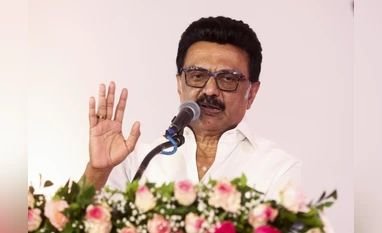As relentless rains continue to cause chaos across North India, spiritual teacher and author Acharya Prashant has called the ongoing devastation a “wake-up call” for the country’s idea of development. Speaking at an event in New Delhi, he argued that calling these disasters “natural calamities” is misleading—and dangerous.
The numbers are staggering. Himachal Pradesh has seen more than 340 lives lost since June, with landslides and flash floods cutting off entire districts. Over 1,300 roads are still blocked. Jammu & Kashmir is battling overflowing rivers, while Punjab has reported damage in 1,400 villages. Even Delhi-NCR is struggling with severe waterlogging, cancelled trains, and transport chaos.
“The scale of loss is overwhelming every relief effort,” Acharya Prashant said.
He didn’t mince words about what—or who—is to blame. “Himachal’s hills are collapsing because we drilled, blasted, and cemented them year after year,” he explained. “When we force rivers into concrete channels and turn wetlands into real estate, the monsoon will pay us back.”
He highlighted the painful gap between the helplessness of rural communities and the negligence of urban planning. “Villages in the Himalayas collapse because they lack resources. But what excuse do cities like Delhi and Gurgaon have? They drown not because they are poor, but because they are careless—storm drains are clogged, floodplains are encroached, and responsibility ends at the boundary wall.”
Climate change, he stressed, is supercharging these disasters. “Asia is heating nearly twice as fast as the global average. That means more violent rain, more cloudbursts. NASA data shows floods and droughts have doubled worldwide in just twenty years.”
According to a leading environmental think tank, the average number of flood-affected districts in India has shot up from 19 per year to 55 per year since 2005. “This isn’t seasonal bad luck—it’s climate collapse happening in real-time. And yet, three out of four flood-prone districts still don’t have proper early-warning systems,” he added.
The crisis, he noted, is also deeply unfair. “The world’s richest 10% are driving emissions with private jets and luxury lifestyles, while farmers and labourers pay with their lives and livelihoods. Climate change isn’t just ecological—it’s the violence of the rich upon the poor.”
So what’s the way out? Acharya Prashant called for urgent action: restoring wetlands and floodplains, taxing carbon-heavy consumption, and holding corporations—and celebrities—accountable for their environmental footprint.
But real change, he insisted, starts within. “Policies will fail unless minds change. Festivals don’t need firecrackers. Joy doesn’t need constant travel or showy displays. The climate outside reflects the climate within—when our inner self is restless, nature collapses too.”
He pointed to ‘Operation 2030’, an initiative by his foundation, which aims to drive large-scale climate awareness before the UN’s 2030 deadline. “Scientists warn that if we don’t limit warming to 1.5°C by 2030, feedback loops could make destruction irreversible. The only way out is inner clarity leading to outer change.”
Quoting the Bhagavad Gita, he concluded, “Action born of wisdom liberates; action born of ignorance destroys. Development without wisdom is just a rehearsal for the next tragedy. The monsoon has delivered its message. Now, will we listen?”



